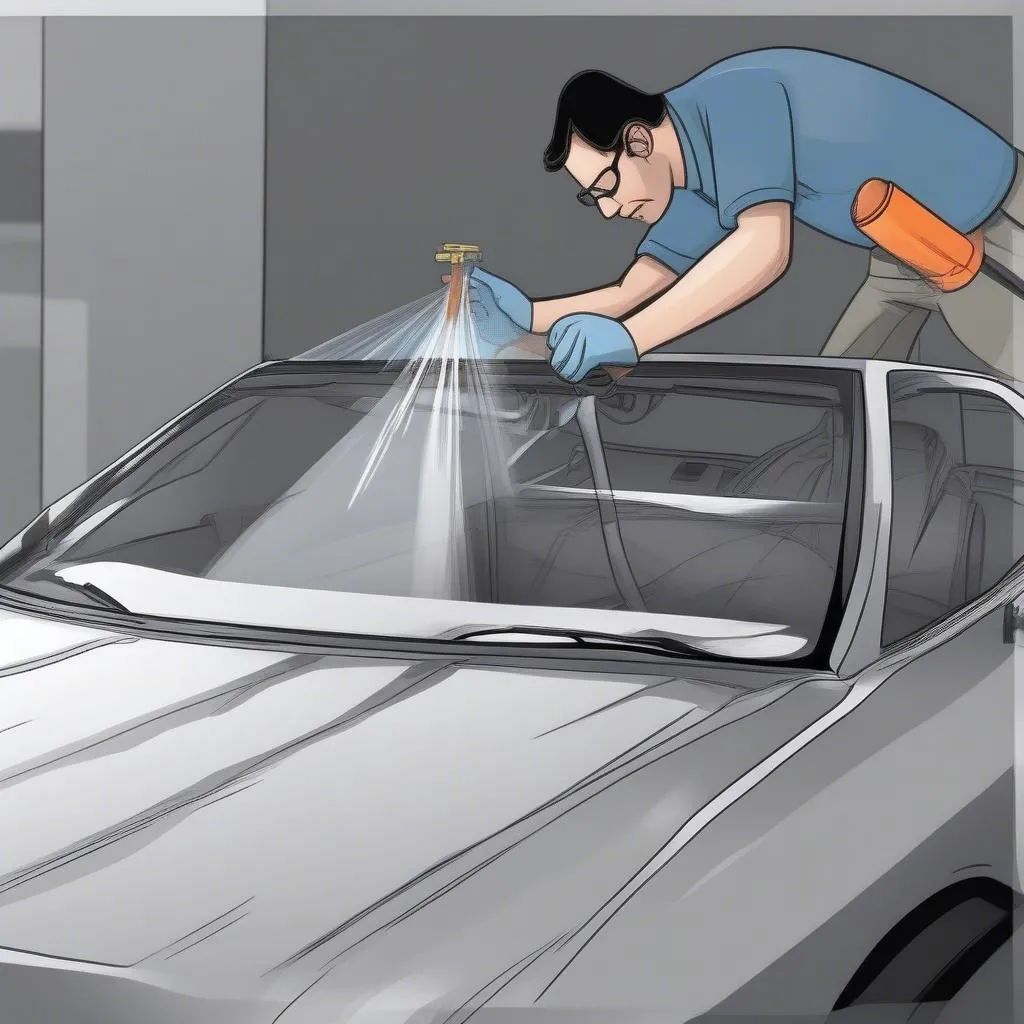Have you ever looked at your car’s windshield and wondered how it stays in place? The answer, of course, is glass glue, also known as windshield adhesive. This specialized glue is the unsung hero of your car’s safety and structural integrity. But what exactly is glass glue and how does it work? Let’s dive into the world of this essential automotive component.
Understanding the Significance of Glass Glue
Glass glue plays a crucial role in ensuring the safety and stability of your vehicle. It forms a strong bond between the windshield and the car’s frame, providing a vital structural support. This bond is essential for several reasons:
1. Structural Integrity:
Imagine your car in a collision. The windshield acts as a safety barrier, preventing passengers from being ejected from the vehicle. Glass glue provides the essential strength to keep the windshield firmly attached to the frame, ensuring its integrity during impact.
2. Watertight Seal:
Glass glue creates a watertight seal between the windshield and the frame, preventing water from leaking into the car’s interior. This is crucial for preventing corrosion and damage to electrical components.
3. Noise Reduction:
Glass glue helps to dampen vibrations and noise, providing a quieter driving experience. This is especially important for vehicles with larger windshields.
How Does Glass Glue Work?
The magic of glass glue lies in its chemical composition and application process. Most glass glues are urethane-based adhesives, which are known for their strong bonding capabilities. Here’s a breakdown of the process:
-
Preparation: The surfaces of the windshield and the car frame are meticulously cleaned to remove any contaminants that could hinder adhesion.
-
Application: The glass glue is applied in a precise pattern, typically with a bead-like consistency.
-
Curing: The glue is allowed to cure for a specific duration under controlled temperature and humidity conditions. This curing process allows the glue to harden and achieve its full bonding strength.
-
Strength: Once cured, the glass glue forms a strong, durable bond that is resistant to shock, vibration, and water penetration.
FAQs about Glass Glue
1. Can I Repair a Damaged Windshield with Glass Glue?
While some glass glues are marketed for windshield repairs, it’s important to consult with a professional. A damaged windshield may need to be replaced entirely to ensure safety and structural integrity.
2. How Often Should I Replace My Glass Glue?
Glass glue typically lasts for the lifetime of the windshield. However, it’s crucial to have any damage inspected by a qualified technician.
3. Can I Use Glass Glue on Other Parts of My Car?
Glass glue is specifically designed for windshields and should not be used on other parts of the car.
Common Issues with Glass Glue
While glass glue is designed to be durable, it can sometimes experience issues. Common problems include:
- Glue Failure: In rare cases, the glass glue may not cure properly, resulting in a weak bond.
- Leaks: A compromised seal can lead to water leaks into the car’s interior.
- Cracks: Cracks in the windshield can weaken the bond and compromise the safety of the glass.
Seeking Professional Help for Windshield Issues
If you notice any issues with your windshield or glass glue, it’s crucial to seek professional help. A qualified technician can assess the situation and recommend the appropriate course of action. Remember, your safety is paramount!
Conclusion
Glass glue is a vital component of your car’s safety and performance. It’s essential for maintaining the structural integrity, watertight seal, and noise reduction of your windshield. While glass glue is designed to be long-lasting, it’s crucial to have any issues inspected by a professional to ensure your safety.
 Glass Glue Installation Process
Glass Glue Installation Process
If you have any questions about glass glue or need help with your car’s windshield, reach out to us at Whatsapp: +84767531508. Our team of experts is available 24/7 to provide you with the guidance and support you need.
